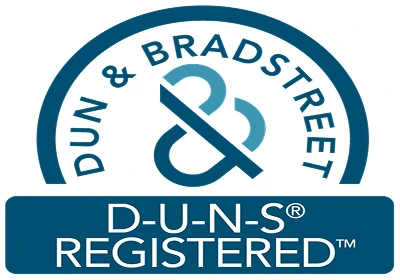Food and Beverages Published Insights
Published Date : 09 Feb, 2026
Hominy Feed Market is estimated to be valued at USD 1.43 Bn in 2025 and is expected to reach USD 2.28 Bn in 2032, exhibiting a compound annual growth rate (CAGR) of 6.9% from 2025 to 2032. The growth of the market is primarily driven by the increasing demand for poultry and livestock products, risin... View more
Published Date : 09 Feb, 2026
Animal Fats And Oils Market is estimated to be valued at USD 325.17 Bn in 2025 and is expected to reach USD 553.68 Bn in 2032, exhibiting a compound annual growth rate (CAGR) of 7.9% from 2025 to 2032. Animal and marine oils and fats are water-insoluble, hydrophobic substances of animal origin. They... View more
Published Date : 09 Feb, 2026
Margarine and Shortening Market is estimated to be valued at USD 16.23 Bn in 2025 and is expected to reach USD 18.01 Bn in 2032, exhibiting a compound annual growth rate (CAGR) of 1.5% from 2025 to 2032. Rising demand for bakery products, convenience foods, and spreads is driving the growth of the m... View more
Published Date : 09 Feb, 2026
Natural Immune Booster Market is estimated to be valued at USD 14.03 Bn in 2025 and is expected to reach USD 22.53 Bn in 2032, exhibiting a compound annual growth rate (CAGR) of 7% from 2025 to 2032. The increasing awareness of the importance of a healthy immune system is driving the growth of the n... View more
Published Date : 09 Feb, 2026
Lycopene is a fat-soluble carotenoid, which is a natural pigment that gives fruits and vegetables their color and has antioxidant properties. Tomatoes are a top source of lycopene in the U.S. diet. Lycopene has been shown to have a range of health benefits, including ... View more
Published Date : 09 Feb, 2026
The term "plant collagen" describes components that resemble collagen but come from plants. Plant-based components high in amino acids, which are the collagen's building blocks, are frequently found in substitutes for animal collagen even if they do not include collag... View more
Published Date : 09 Feb, 2026
The term "sinking fish feed" describes a particular kind of food made to sink in water and meet the dietary requirements of fish species that typically feed near the bottom of the water column. It supports the aquaculture industry's objective of creating sustainable a... View more
Published Date : 09 Feb, 2026
Seafood broth is a tasty liquid that can be used to create soups, stews, sauces, and gravies. It is prepared by cooking veggies, spices, and seafood. It is frequently made from animal parts that are typically abandoned, like fish bones, heads, tails, and shells. A fla... View more
Published Date : 09 Feb, 2026
Increasing demand for nutraceutical ingredients is aiding in growth of the nutritional supplements market in Germany. Germany is one of the major contributors in the Europe nutritional supplements market growth. Rising awareness among the populace regarding once aesth... View more
Published Date : 09 Feb, 2026
The global Worcestershire sauce market is expected to exhibit a CAGR of 4.5% during the forecast period. Rising consumption of organic food products globally is supporting the growth of the certified organic segment. Moreover, due to the increasing demand for organic ... View more
Published Date : 09 Feb, 2026
Energy Bar are made of cereals, grains, flavoring ingredients, and added nutrients. Their primary purpose is to provide the body with energy in a short period of time. They may be considered functional foods, too, because they contain added nutrients. There are two ma... View more
Published Date : 09 Feb, 2026
Global diabetic food market is growing at a substantial rate, owing to the rise in population ageing across the globe. In addition to this, adoption of healthy lifestyle and increasing health awareness among consumers is expected foster growth of market during the for... View more
Published Date : 09 Feb, 2026
Edible nuts are dried fruits consumed worldwide and are an important source of nutrients such as fiber, potassium, vitamin A, iron, and Vitamin K. Edible nuts include almonds, cashew nuts, hazelnuts, walnuts, pistachios, chestnuts, and Brazil nuts. Edible nuts are use... View more
Published Date : 09 Feb, 2026
The Processed super fruits market is growing at a substantial rate, owing to the rising demand from the food & beverages industry across the globe. In addition to this, the growing demand for super fruits-based antioxidants is expected to foster the growth of the ... View more
Published Date : 09 Feb, 2026
Red berries are small edible fruits, typically juicy, sweet, and sour. These are widely used across various food applications such as bakery, beverages, and desserts. These are also used in the preparation of flavored alcohol for enhancing the taste of the alcohol. Th... View more
Published Date : 09 Feb, 2026
Egg processing is a huge segment of the food processing industry where eggs are processed into various convenient forms, for consumption. Eggs are the most common reproductive form of different species but their high nutritive value in terms of protein, carbohydrate, ... View more
Published Date : 09 Feb, 2026
Probiotics are functional foods and drinks that improve gut functioning and immunity. Furthermore, they aid in the breakdown of high-calorie meals, making it easier for stomach acids to breakdown complex proteins and improve digestion. Adoption of a healthy lifestyle ... View more
Published Date : 09 Feb, 2026
Cassia gum is a food additive produced from an endosperm known as cassia tora. It is widely demanded and used by user as a food additives in the pet food industry, and it also finds applications as a thickener and emulsifier in the food and beverages, personal care, p... View more





